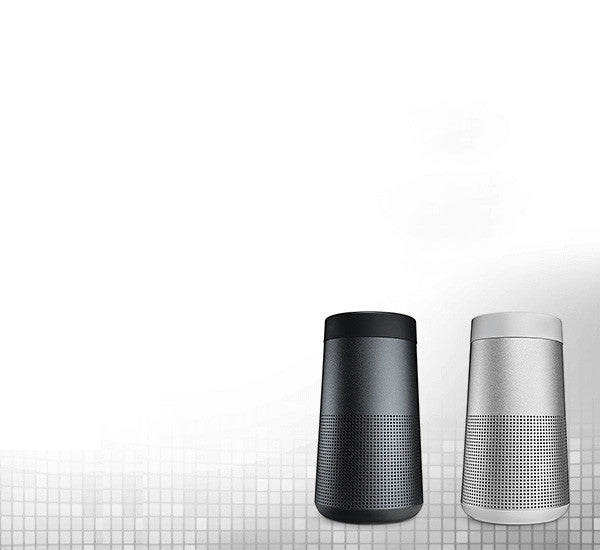You have no items in your shopping cart.

Alexa can do more than playing music and setting timers. Here's our guide to getting the most from your Amazon Echo, and how to play games on it.

So you’ve got an Amazon Echo. It’s a great gadget which is capable of doing a surprising amount. But in order to make the most of it you need to know what to say to Alexa and, in some cases, how to set things up.
Here we’ll outline some of the best features, along with our tips and tricks for using Alexa.
First, after you’ve set up an Echo, spend a little while running through the ‘Things to try’ section in the Alexa app.
If you have an Echo Show or Spot, you'll see these tips appear on screen. Unfortunately, there is no option to turn these off.
You’ll find Things to Try in main menu of the Alexa app. To get to this menu, swipe right on the screen or tap on the three horizontal lines in the top left corner.
Things to Try is divided up into many categories, so just pick one and try saying a few commands. One section to look at is 'What's New' as this tells you the latest features.
From setting timers and alarms to finding out information and converting units and measurements, Alexa can be useful in many situations (especially when cooking).
What’s important is to understand that ‘Alexa’ is the wake word. It’s no use saying “Stop the timer, Alexa” as all she will hear is “Alexa” with no command afterwards.
You must say Alexa first, but there’s no need to pause and wait. For example you can say “Alexa, what’s the weather on Sunday”. As long as you watch to see that the LED ring on top lights up to indicate she has heard the wake word, keep speaking.
We’ve put together a list of Alexa’s capabilities and what you need to say to use them.
Music & radio
One of the Echo’s main features is playing music. By default, Alexa will play from Amazon Music. But if you have a Spotify subscription you can say “Alexa, play Billie Jean from Spotify” to specify which service to use. You’ll need to configure your Spotify account first, so open the main menu in the Alexa app and tap on Settings > Music & Media. The same goes for Apple Music.
Tap on one of these services and then on ‘LINK YOUR ACCOUNT’.
Alexa also supports TuneIn, and this means you can listen to the radio. Just say “Alexa, play Radio 4 on TuneIn” and it will start playing. This applies to any station on TuneIn, so your favourite FM or digital radio station should be there.
Top tip: If you have more than one Echo, you can add them to a group and have music play in sync across them. You’ll find this under Devices > Speaker Groups.
Top tip 2: You can tell Alexa to play music on a specific Echo if you have more than one. First, make sure you’ve named your Echo. Usually it makes sense to name it after the room it’s in. Do this under Settings > Device Settings > [Your Echo device] > Edit Name.
Then you can say “Alexa, play festive music everywhere” or "Alexa, play 90s music in the lounge".
You'll see what's playing currently on the screen of an Echo Show or Spot, but you can ask "Alexa, turn on Song ID" to get her to announce the song artist and track title at the start of each song.
Reminders and lists:
Alexa can remind you of things. Just say “Alexa, remind me to pay my TV licence tomorrow at 11am”. Obviously you won’t hear the reminder if you’re not within earshot, but she will remind you at that time nonetheless.
You can also check those reminders in the Alexa app, of course, so they don’t disappear after the set time and date.
Lists are separate to reminders. There are two: Shopping and To-do. Just ask Alexa to put something on a list by saying “Alexa, add cornflakes to my shopping list”. Then, when you’re in the supermarket you can check the list within the app.
The to-do list isn’t sophisticated enough to include deadlines, but you can similarly say “Alexa, add put out the bins to my to-do list”.
Skills
As well as Alexa’s core functions, you can enable a lot more by looking through the library of Skills.There are thousands, but some require you to have hardware (such as a smart light or switch) or a subscription to a particular service. Most, though, are completely free to use and will work straight away.
They include everything from a Skill to check train times through to games and ‘silly’ features like Meow Meow, where Alexa will make cat noises.
If you already know the name of the skill just say “Alexa enable the [name of skill] skill”. Otherwise, in the Alexa app, from the main menu choose Skills & Games and browse through or search. Star ratings help to see whether others think it's a good skill or not.
You can also create and customise your own personal Alexa skills, which is great for when you have house guests or when it's someone's birthday.
Here's how to make a Skill with Alexa Skill Blueprints.
Routines:
Another handy feature is the ability to set up a series of actions which happen on your command. So although Alexa can’t accept multiple requests in one go, Routines is sort of a workaround for this.
You could configure, for example, that Alexa will turn on the lights and read your Flash Briefing when you say “Alexa, good morning”.
The former will happen only if you have compatible smart lights (see Control your stuffbelow). The latter is a built-in feature which gives you a news and weather update.
To customise the Flash Briefing, go to Settings > Flash Briefing. Tap the boxes next to the services you want included, and tap ‘Get more Flash Briefing content’ to add more.
Bear in mind that not all of the services offered are recorded audio: some use Alexa’s text-to-speech function. Unfortunately, this isn’t really good enough yet compared to listening to a pre-recorded news bulletin. But you can switch off anything you don’t like easily enough.
Control your lights and switches:
Many companies have added Alexa support for their smart home gadgets, including Wi-Fi light bulbs, smart plugs, security cameras, temperature and motion sensors, thermostats and radiator valves.
You’ll have to enable the relevant Skill, then enter your login details and authorise Alexa to control those devices through your account.
Then it’s just a case of learning exactly what to say to control them, as well as what’s possible. For example, you can group multiple smart bulbs and get Alexa to turn them on and off at the same time by saying "Alexa turn off the lights".
When naming any device, keep it as simple as possible to ensure Alexa doesn’t miss-hear you.
If you have an Echo Show or Spot, you can view the video feed from compatible cameras. Again, enable the Skill from the camera's manufacturer and enter your account details. Then say "Alexa, show me the front door" or use whatever name you have given that camera. Remember, rename your camera if the current name isn't easy to say or easy for Alexa to understand.
Messages:
Alexa can send messages and make voice calls to another Alexa users.
Once you allow her to access your phone (or tablet) contacts, she can identify who has an Echo or the Alexa app.
You can then say “Alexa, tell Marc I’ll be round in 15 minutes”. Your voice recording will then be played on their Echo when they check their messages.
Alternatively you can type your message in the Alexa app, and she will then read it out in her voice instead of using a recording of your voice.
For more details see our guide to Alexa messaging and calling.
There's also the ability to broadcast messages on all your Echo devices. Ask Alexa on any Echo and say "Alexa tell everyone dinner is ready" and she will announce it around the house.
Easter eggs:
Alexa has been criticised for not having as much of a sense of humour as the Google Assistant. But that’s really not true.
Amazon has given Alexa many witty responses: you just need to know what to ask. We’ve put together a great list of questions you can ask to get funny responses. One quick example is "Alexa, tell us a joke".
And there’s a selection of games you can play. So try saying the following:
- Alexa, play 20 questions
- Alexa, play rock, paper, scissors
- Alexa, play Bingo
- Alexa, open the Wayne Investigation
- Alexa, open Geography Trivia
- If you’re playing a board game, say “Alexa, roll the dice”.
Alexa can do more than playing music and setting timers. Here's our guide to getting the most from your Amazon Echo, and how to play games on it.

So you’ve got an Amazon Echo. It’s a great gadget which is capable of doing a surprising amount. But in order to make the most of it you need to know what to say to Alexa and, in some cases, how to set things up.
Here we’ll outline some of the best features, along with our tips and tricks for using Alexa.
First, after you’ve set up an Echo, spend a little while running through the ‘Things to try’ section in the Alexa app.
If you have an Echo Show or Spot, you'll see these tips appear on screen. Unfortunately, there is no option to turn these off.
You’ll find Things to Try in main menu of the Alexa app. To get to this menu, swipe right on the screen or tap on the three horizontal lines in the top left corner.
Things to Try is divided up into many categories, so just pick one and try saying a few commands. One section to look at is 'What's New' as this tells you the latest features.
From setting timers and alarms to finding out information and converting units and measurements, Alexa can be useful in many situations (especially when cooking).
What’s important is to understand that ‘Alexa’ is the wake word. It’s no use saying “Stop the timer, Alexa” as all she will hear is “Alexa” with no command afterwards.
You must say Alexa first, but there’s no need to pause and wait. For example you can say “Alexa, what’s the weather on Sunday”. As long as you watch to see that the LED ring on top lights up to indicate she has heard the wake word, keep speaking.
We’ve put together a list of Alexa’s capabilities and what you need to say to use them.
Music & radio
One of the Echo’s main features is playing music. By default, Alexa will play from Amazon Music. But if you have a Spotify subscription you can say “Alexa, play Billie Jean from Spotify” to specify which service to use. You’ll need to configure your Spotify account first, so open the main menu in the Alexa app and tap on Settings > Music & Media. The same goes for Apple Music.
Tap on one of these services and then on ‘LINK YOUR ACCOUNT’.
Alexa also supports TuneIn, and this means you can listen to the radio. Just say “Alexa, play Radio 4 on TuneIn” and it will start playing. This applies to any station on TuneIn, so your favourite FM or digital radio station should be there.
Top tip: If you have more than one Echo, you can add them to a group and have music play in sync across them. You’ll find this under Devices > Speaker Groups.
Top tip 2: You can tell Alexa to play music on a specific Echo if you have more than one. First, make sure you’ve named your Echo. Usually it makes sense to name it after the room it’s in. Do this under Settings > Device Settings > [Your Echo device] > Edit Name.
Then you can say “Alexa, play festive music everywhere” or "Alexa, play 90s music in the lounge".
You'll see what's playing currently on the screen of an Echo Show or Spot, but you can ask "Alexa, turn on Song ID" to get her to announce the song artist and track title at the start of each song.
Reminders and lists:
Alexa can remind you of things. Just say “Alexa, remind me to pay my TV licence tomorrow at 11am”. Obviously you won’t hear the reminder if you’re not within earshot, but she will remind you at that time nonetheless.
You can also check those reminders in the Alexa app, of course, so they don’t disappear after the set time and date.
Lists are separate to reminders. There are two: Shopping and To-do. Just ask Alexa to put something on a list by saying “Alexa, add cornflakes to my shopping list”. Then, when you’re in the supermarket you can check the list within the app.
The to-do list isn’t sophisticated enough to include deadlines, but you can similarly say “Alexa, add put out the bins to my to-do list”.
Skills
As well as Alexa’s core functions, you can enable a lot more by looking through the library of Skills.There are thousands, but some require you to have hardware (such as a smart light or switch) or a subscription to a particular service. Most, though, are completely free to use and will work straight away.
They include everything from a Skill to check train times through to games and ‘silly’ features like Meow Meow, where Alexa will make cat noises.
If you already know the name of the skill just say “Alexa enable the [name of skill] skill”. Otherwise, in the Alexa app, from the main menu choose Skills & Games and browse through or search. Star ratings help to see whether others think it's a good skill or not.
You can also create and customise your own personal Alexa skills, which is great for when you have house guests or when it's someone's birthday.
Here's how to make a Skill with Alexa Skill Blueprints.
Routines:
Another handy feature is the ability to set up a series of actions which happen on your command. So although Alexa can’t accept multiple requests in one go, Routines is sort of a workaround for this.
You could configure, for example, that Alexa will turn on the lights and read your Flash Briefing when you say “Alexa, good morning”.
The former will happen only if you have compatible smart lights (see Control your stuffbelow). The latter is a built-in feature which gives you a news and weather update.
To customise the Flash Briefing, go to Settings > Flash Briefing. Tap the boxes next to the services you want included, and tap ‘Get more Flash Briefing content’ to add more.
Bear in mind that not all of the services offered are recorded audio: some use Alexa’s text-to-speech function. Unfortunately, this isn’t really good enough yet compared to listening to a pre-recorded news bulletin. But you can switch off anything you don’t like easily enough.
Control your lights and switches:
Many companies have added Alexa support for their smart home gadgets, including Wi-Fi light bulbs, smart plugs, security cameras, temperature and motion sensors, thermostats and radiator valves.
You’ll have to enable the relevant Skill, then enter your login details and authorise Alexa to control those devices through your account.
Then it’s just a case of learning exactly what to say to control them, as well as what’s possible. For example, you can group multiple smart bulbs and get Alexa to turn them on and off at the same time by saying "Alexa turn off the lights".
When naming any device, keep it as simple as possible to ensure Alexa doesn’t miss-hear you.
If you have an Echo Show or Spot, you can view the video feed from compatible cameras. Again, enable the Skill from the camera's manufacturer and enter your account details. Then say "Alexa, show me the front door" or use whatever name you have given that camera. Remember, rename your camera if the current name isn't easy to say or easy for Alexa to understand.
Messages:
Alexa can send messages and make voice calls to another Alexa users.
Once you allow her to access your phone (or tablet) contacts, she can identify who has an Echo or the Alexa app.
You can then say “Alexa, tell Marc I’ll be round in 15 minutes”. Your voice recording will then be played on their Echo when they check their messages.
Alternatively you can type your message in the Alexa app, and she will then read it out in her voice instead of using a recording of your voice.
For more details see our guide to Alexa messaging and calling.
There's also the ability to broadcast messages on all your Echo devices. Ask Alexa on any Echo and say "Alexa tell everyone dinner is ready" and she will announce it around the house.
Easter eggs:
Alexa has been criticised for not having as much of a sense of humour as the Google Assistant. But that’s really not true.
Amazon has given Alexa many witty responses: you just need to know what to ask. We’ve put together a great list of questions you can ask to get funny responses. One quick example is "Alexa, tell us a joke".
And there’s a selection of games you can play. So try saying the following:
- Alexa, play 20 questions
- Alexa, play rock, paper, scissors
- Alexa, play Bingo
- Alexa, open the Wayne Investigation
- Alexa, open Geography Trivia
- If you’re playing a board game, say “Alexa, roll the dice”.
























← Older Post Newer Post →